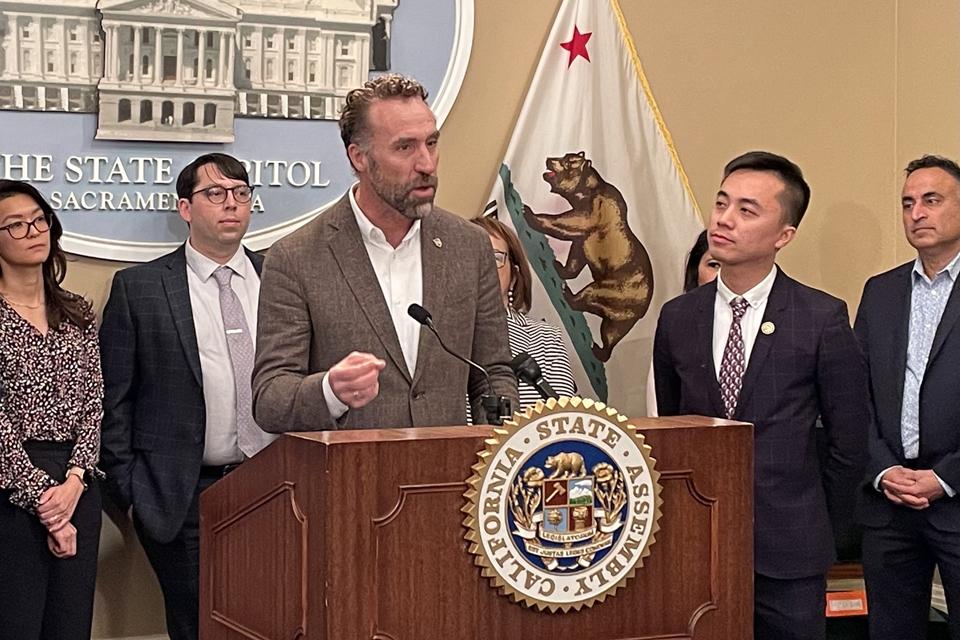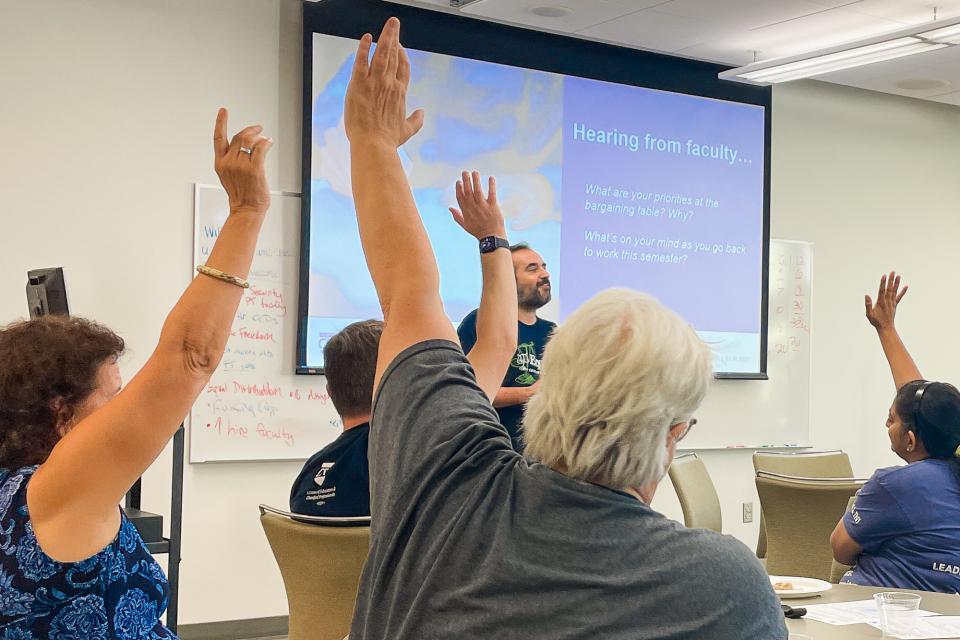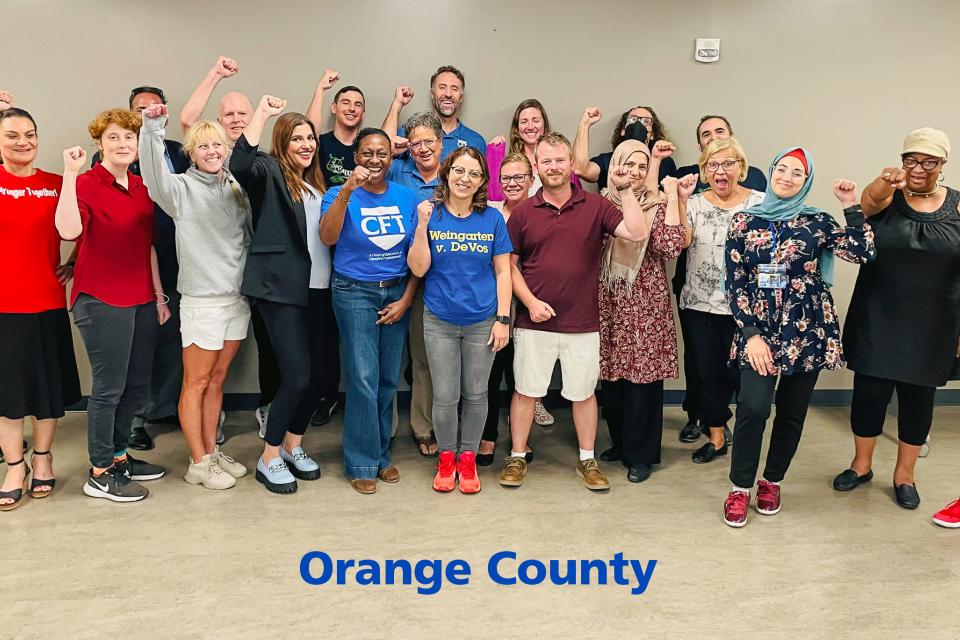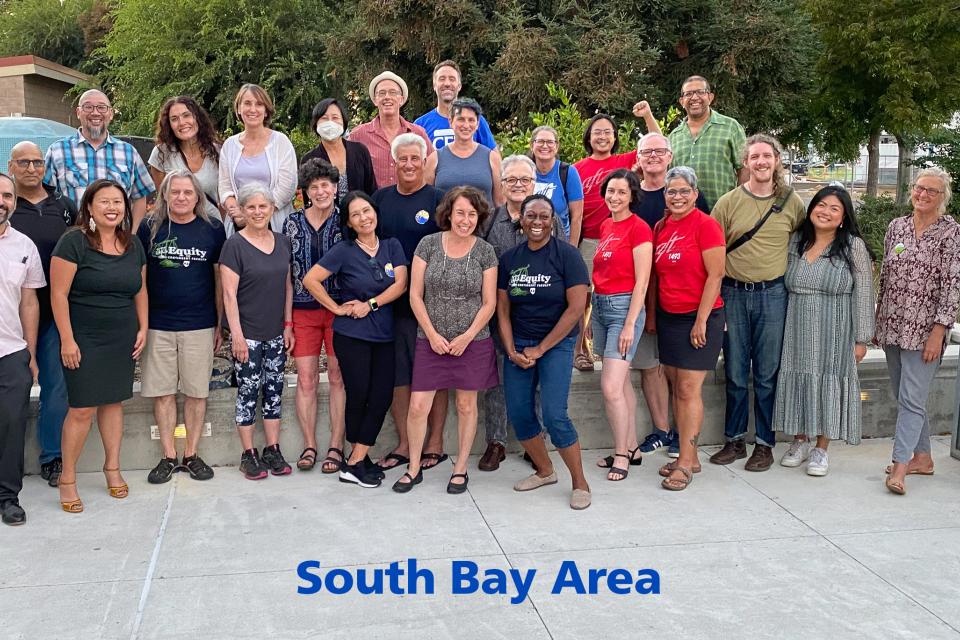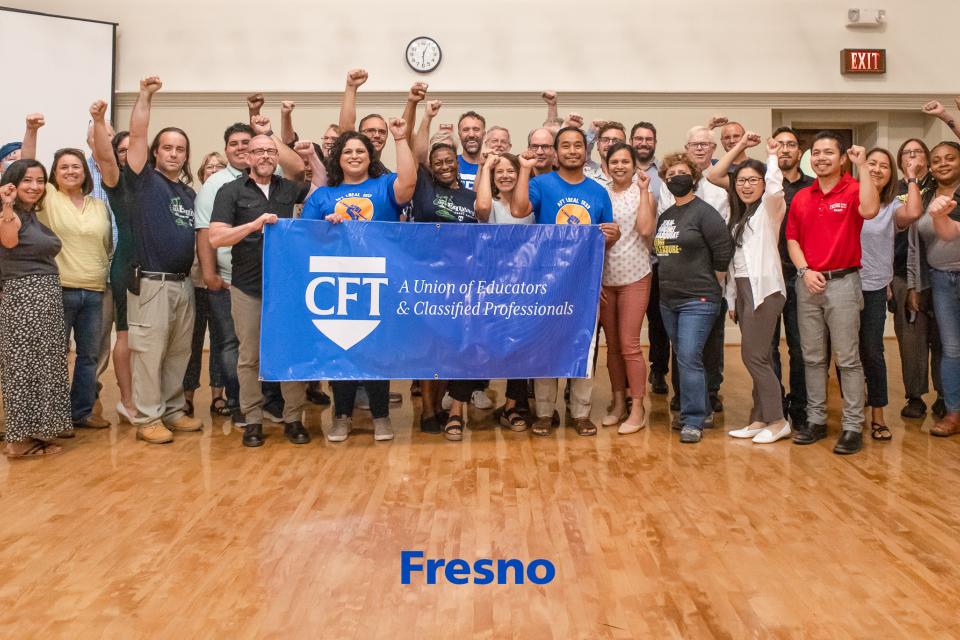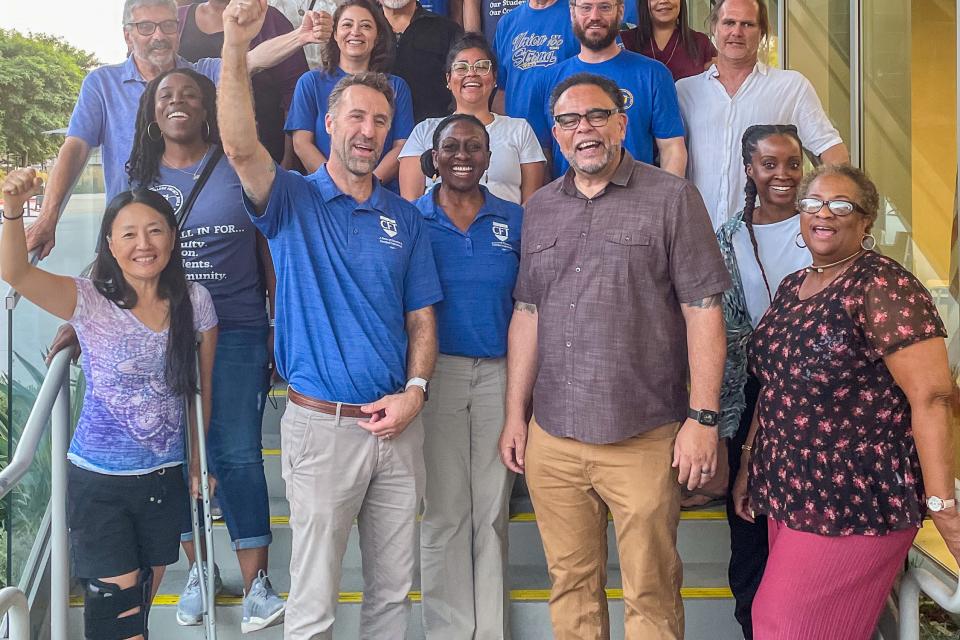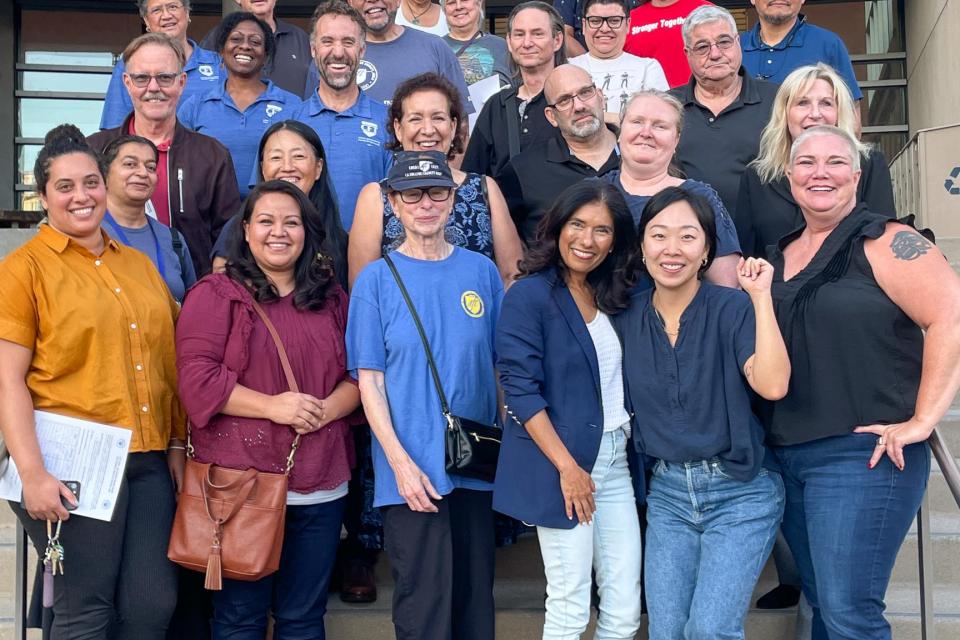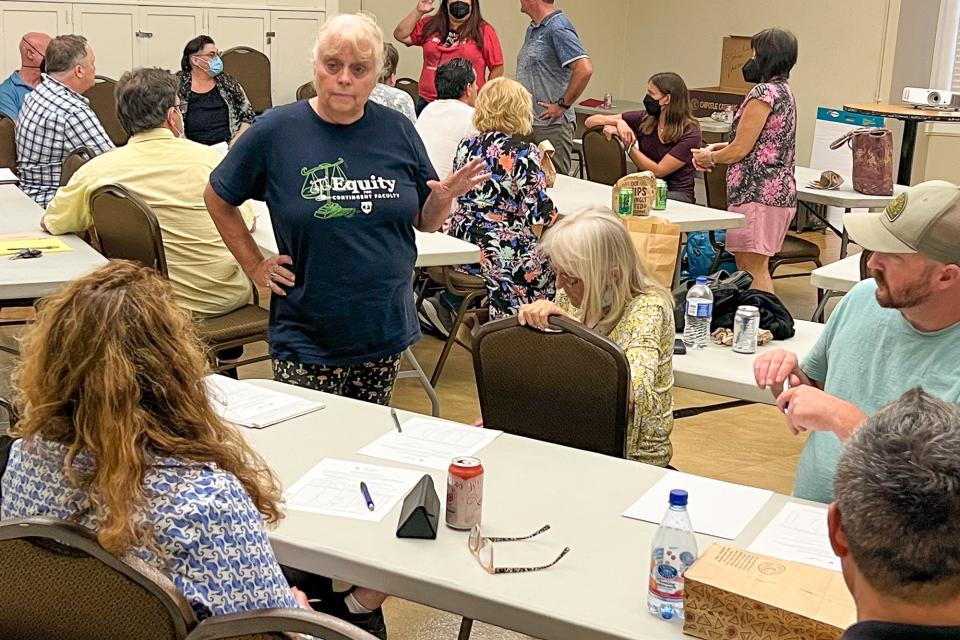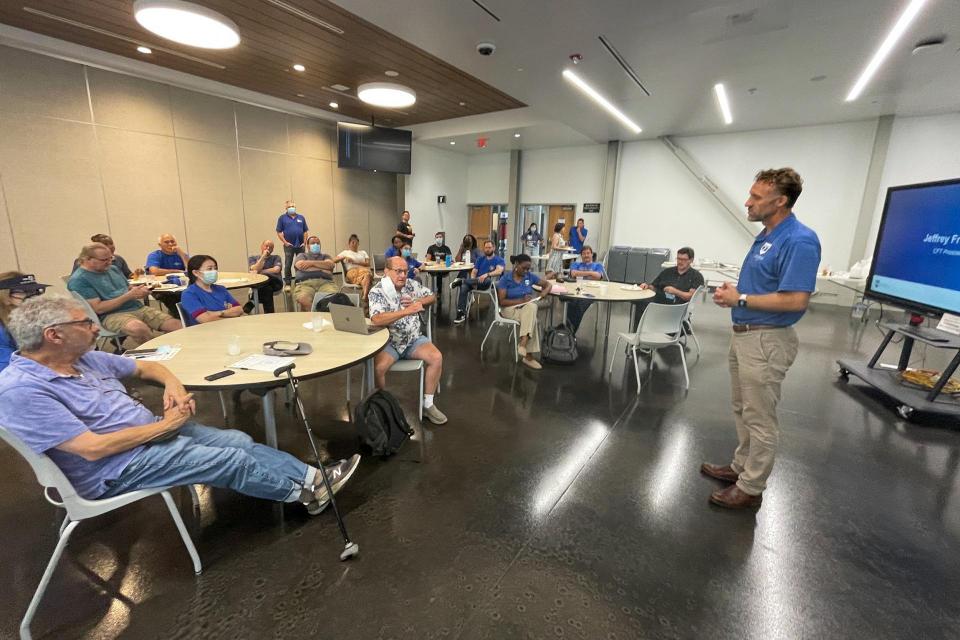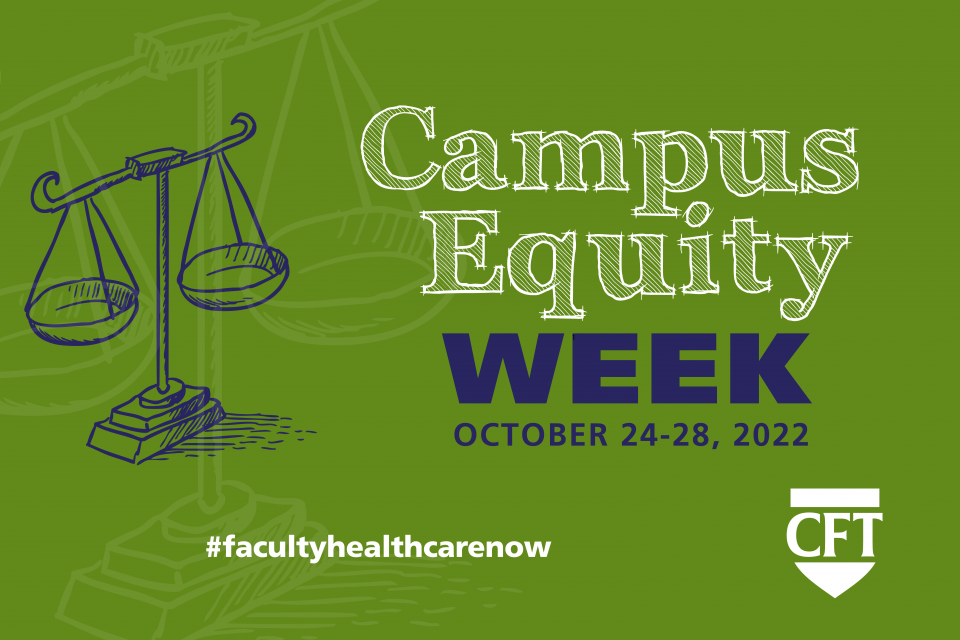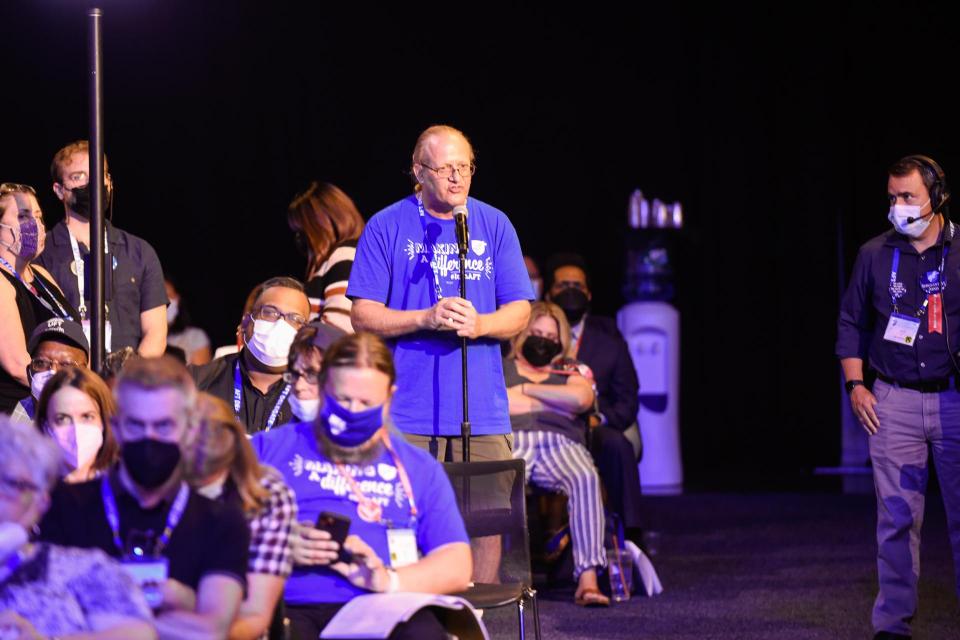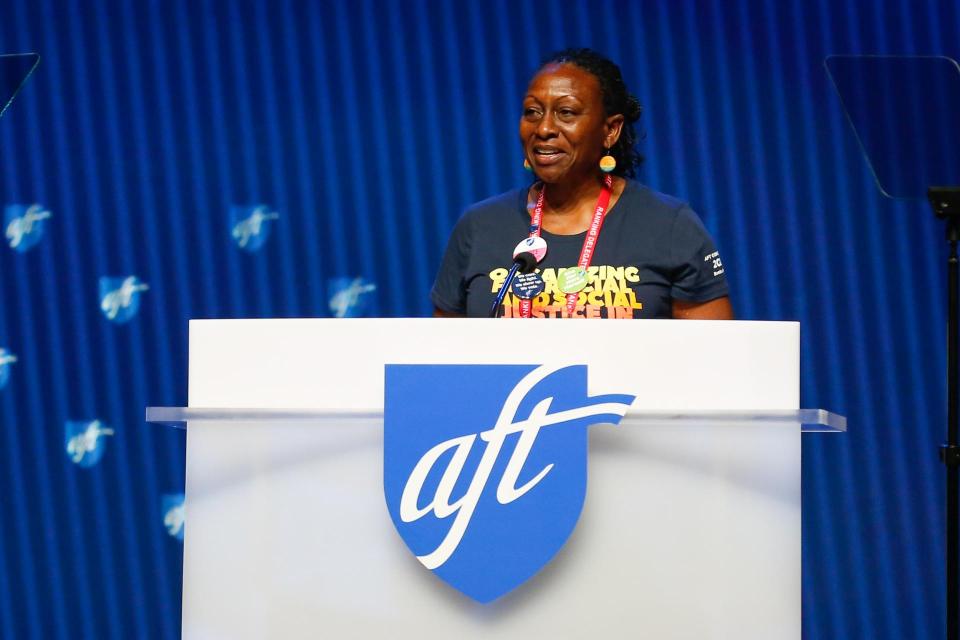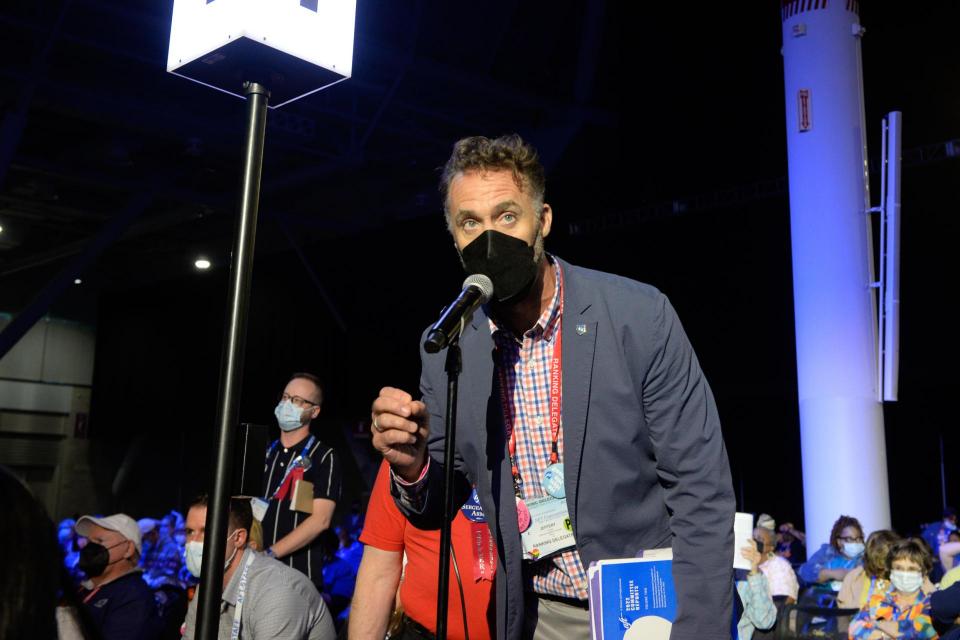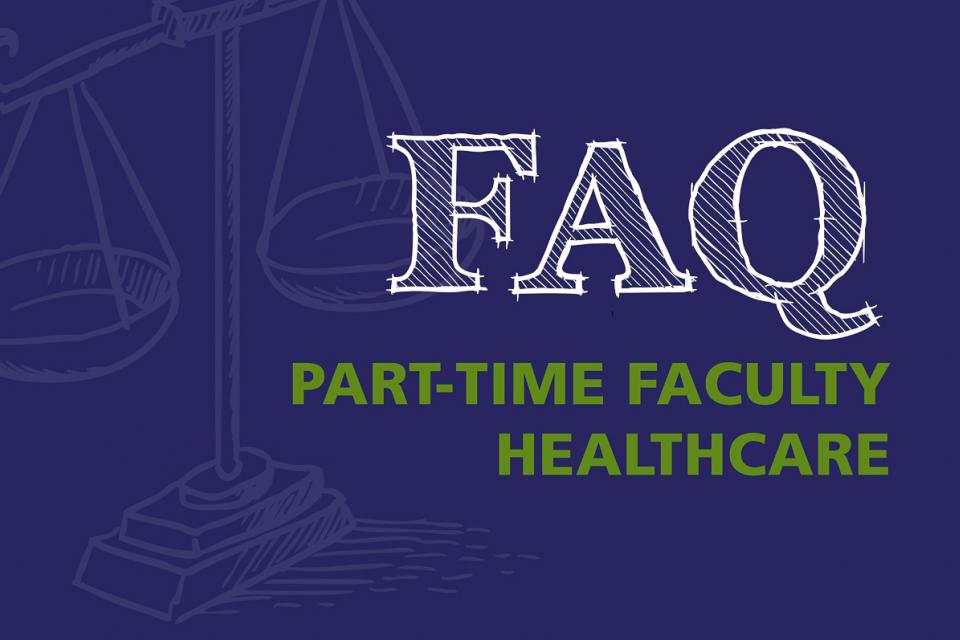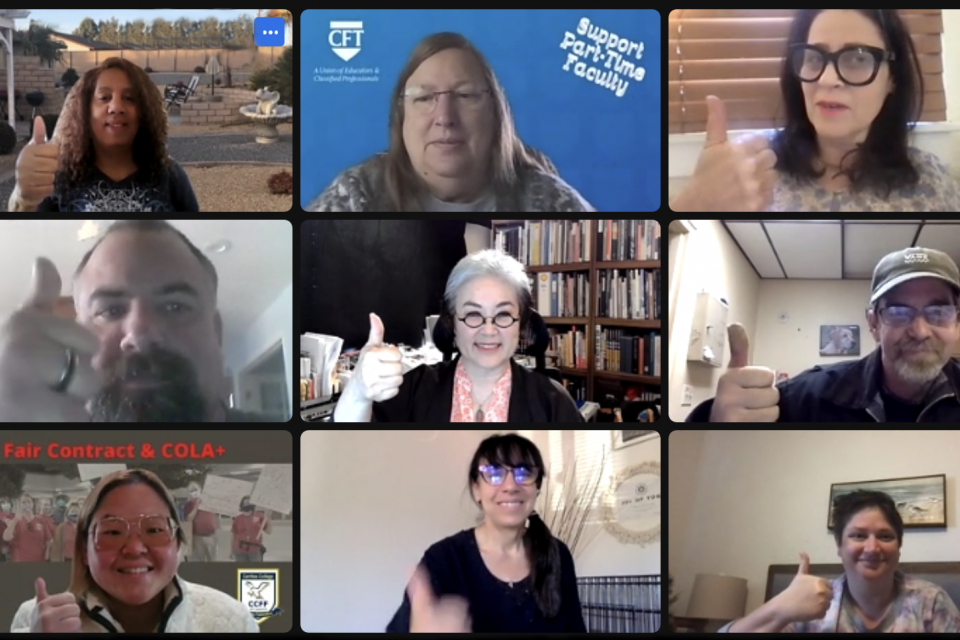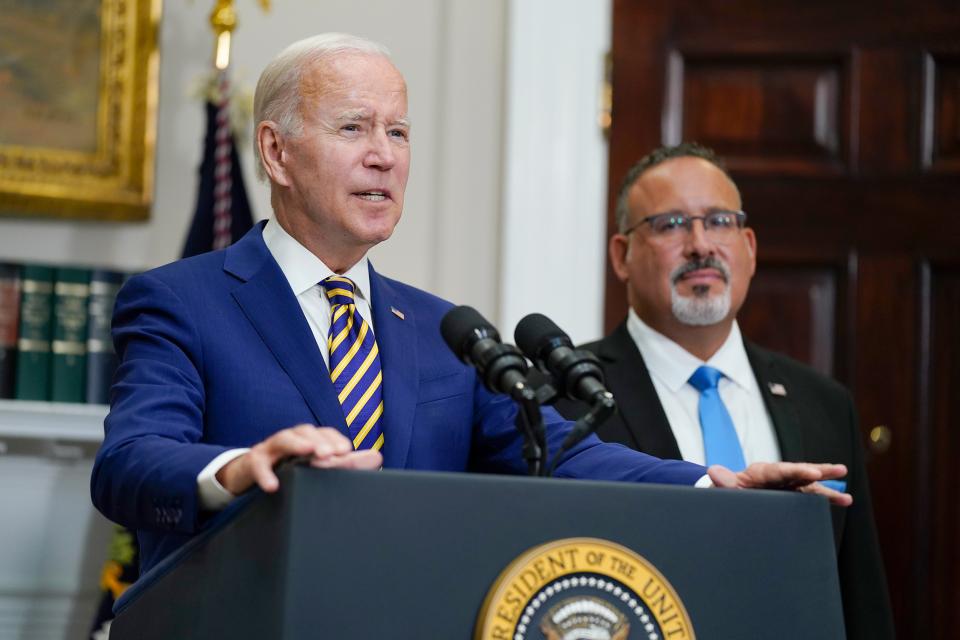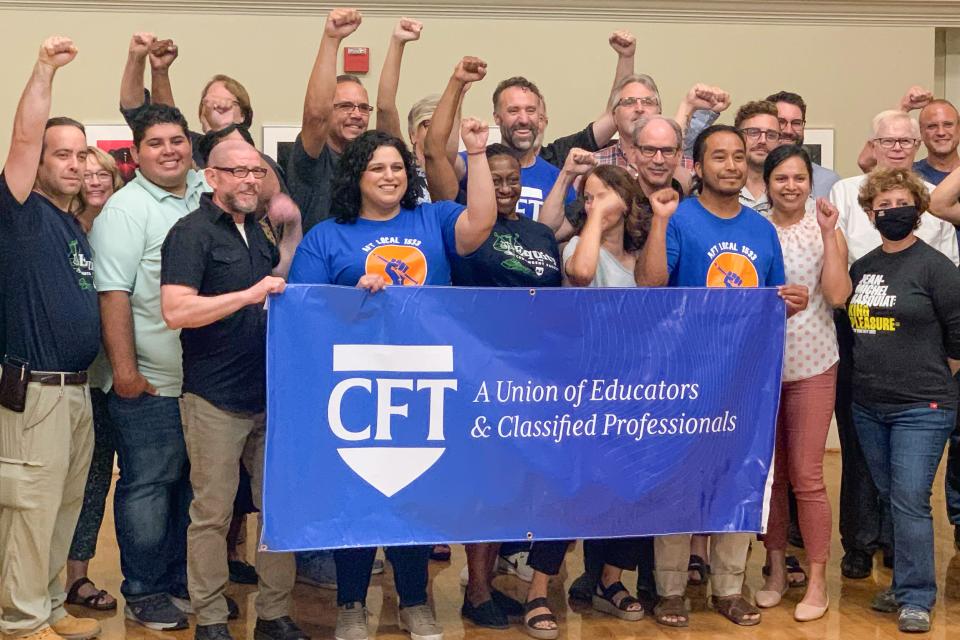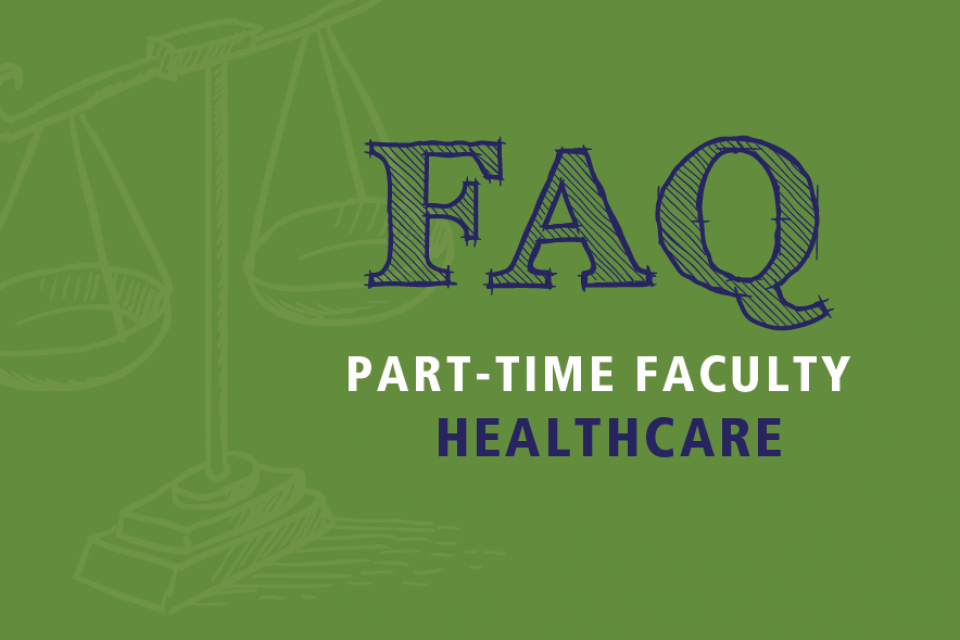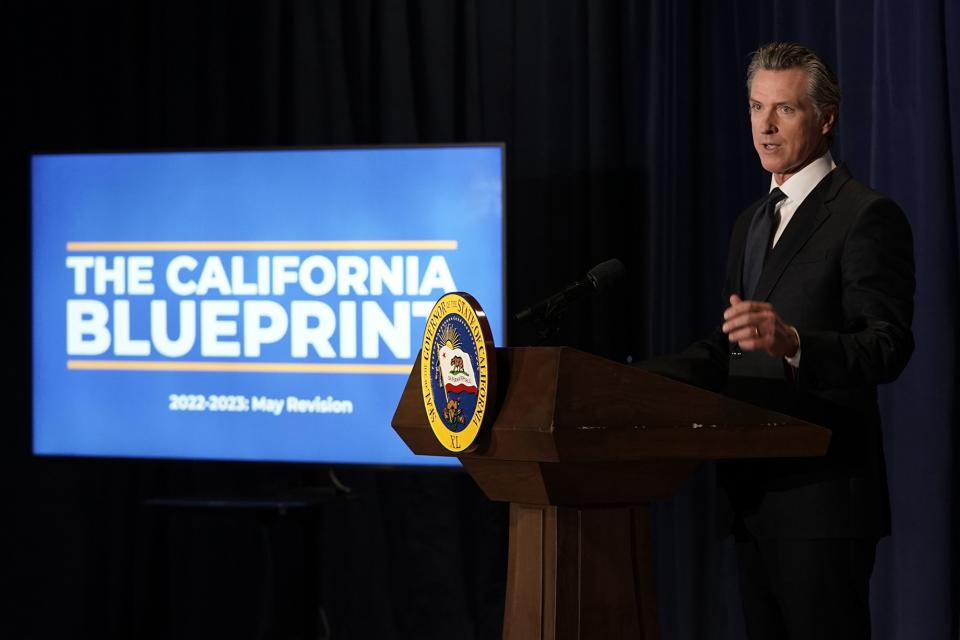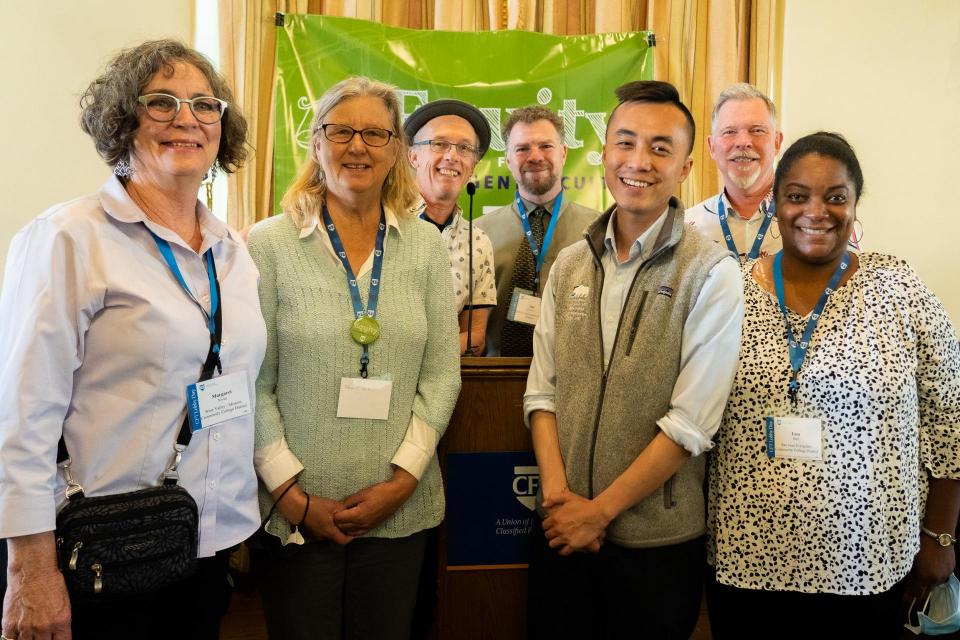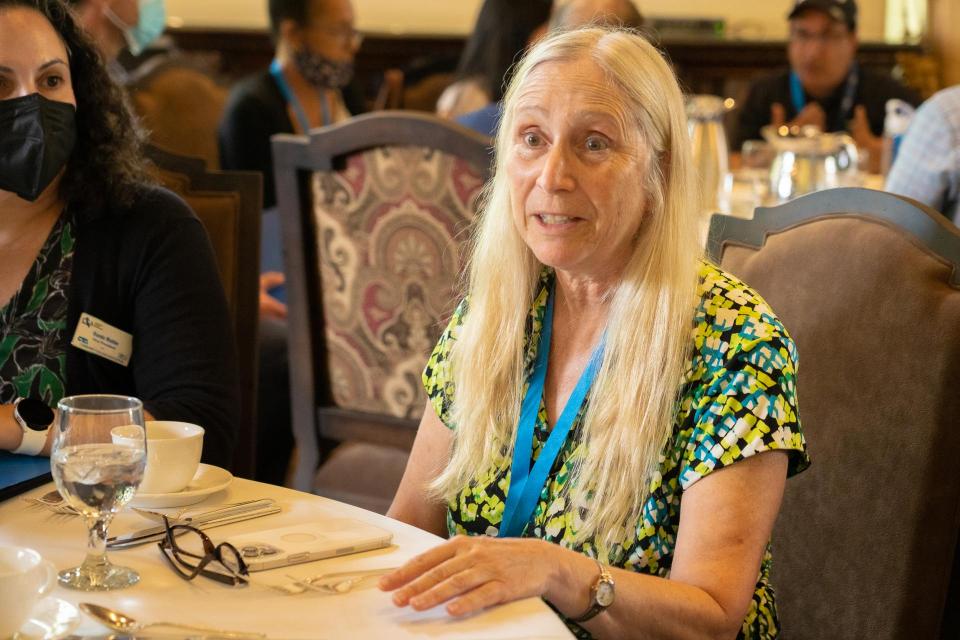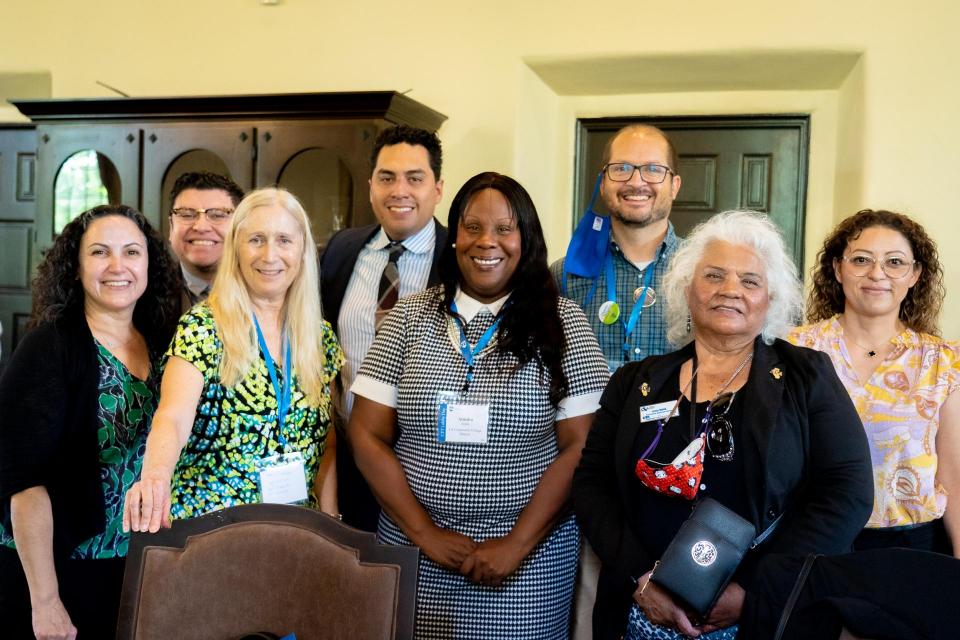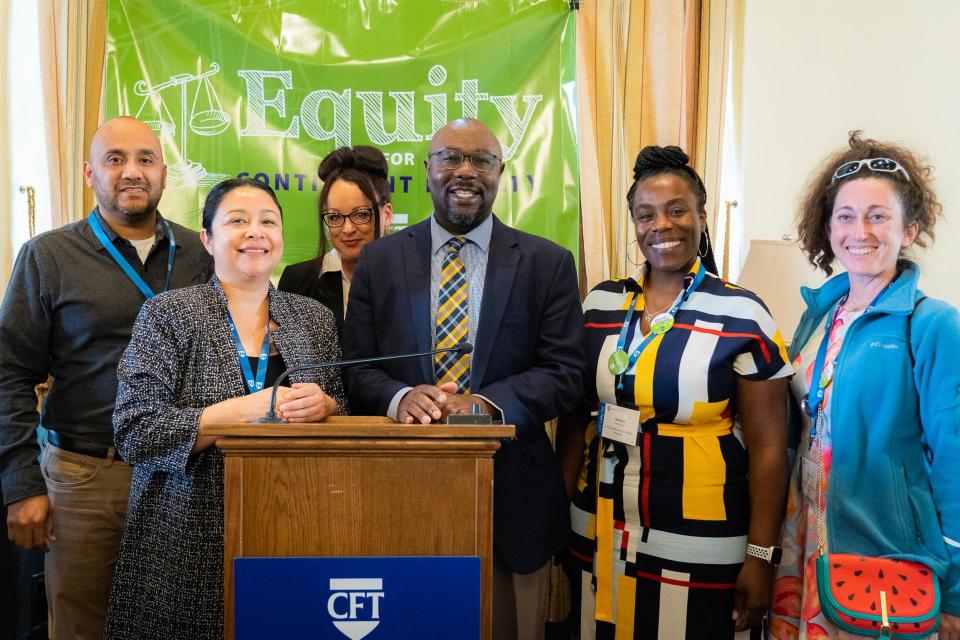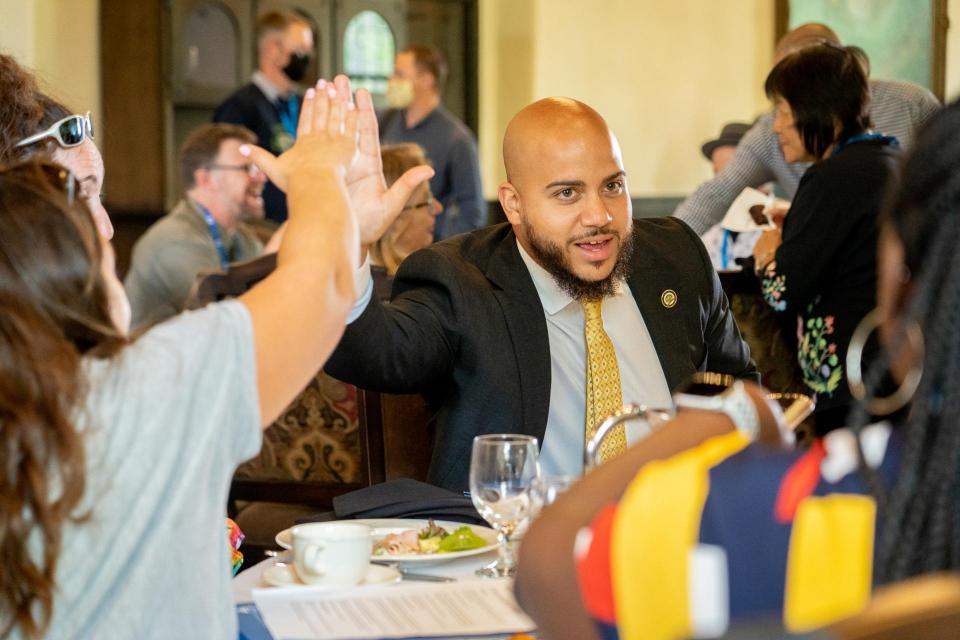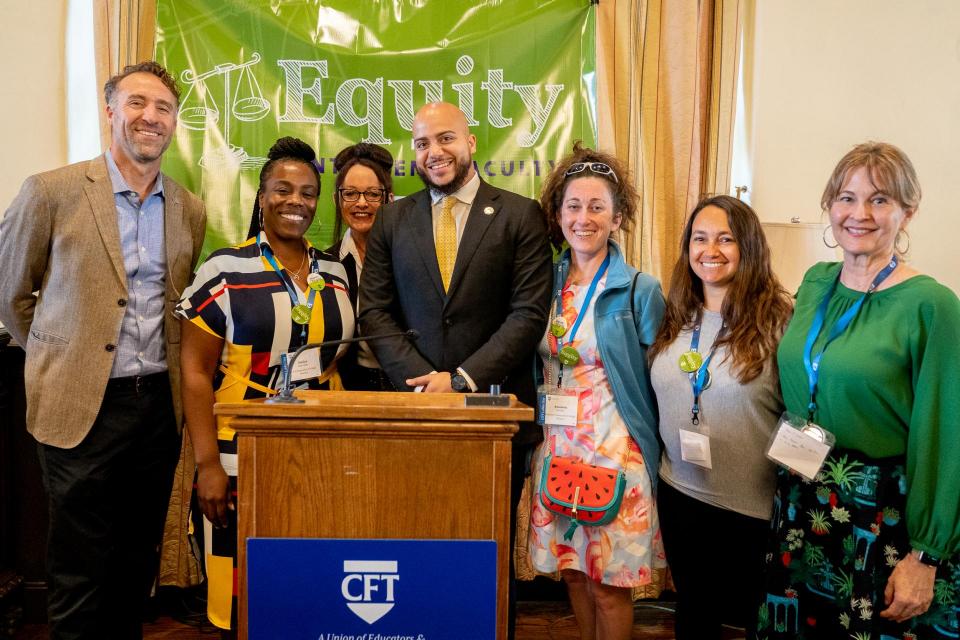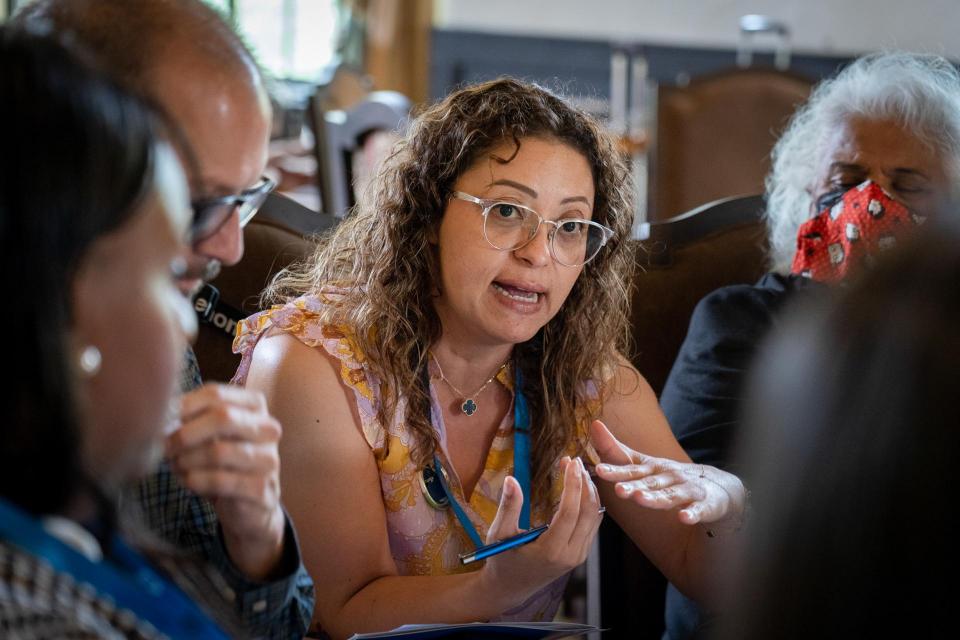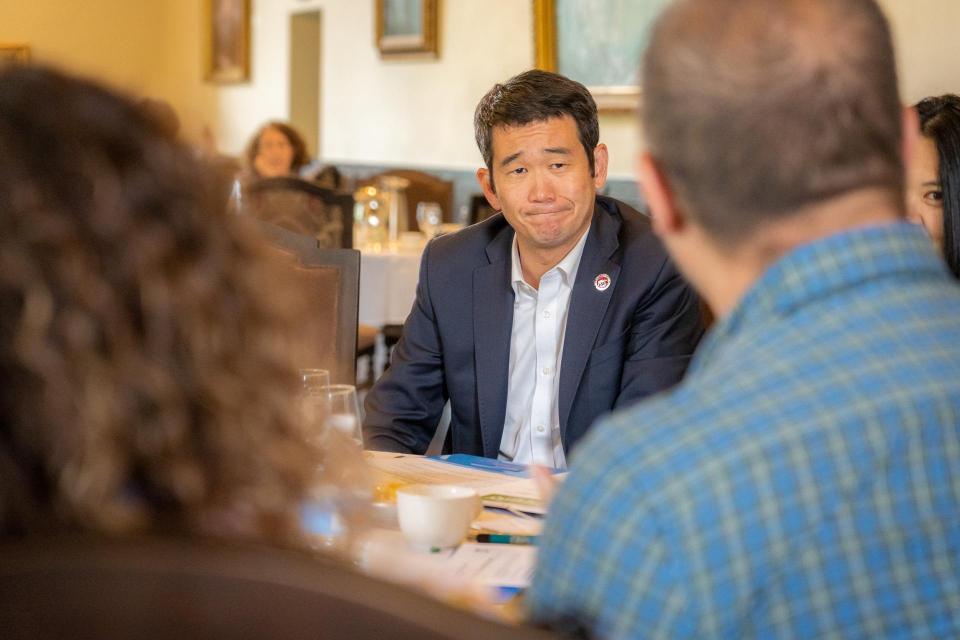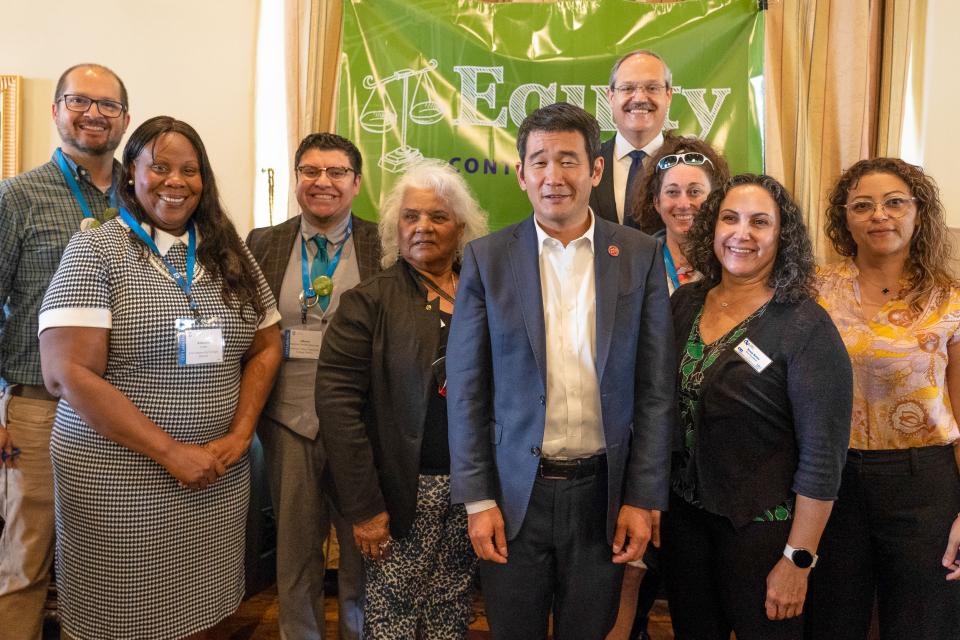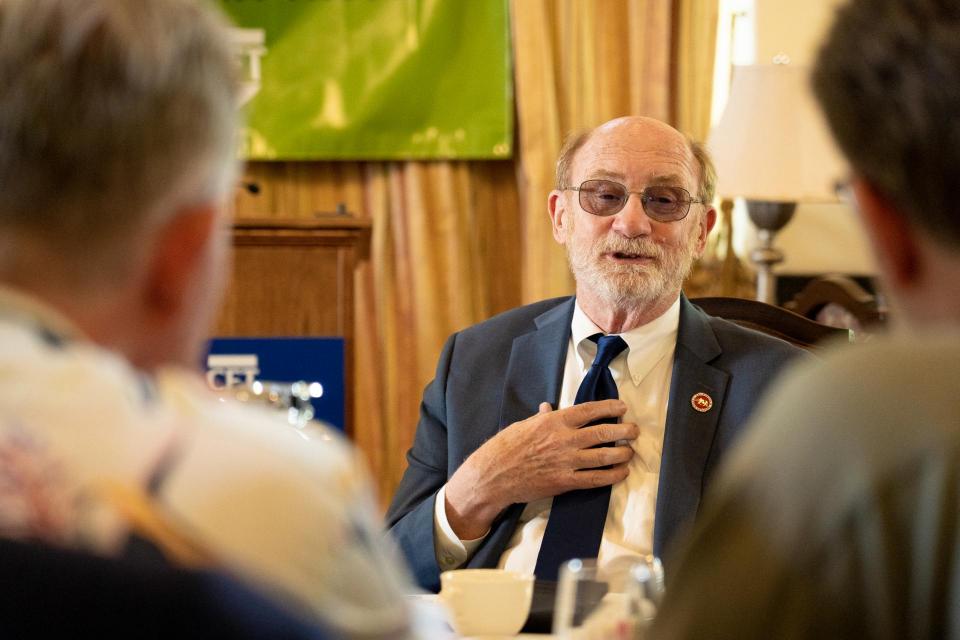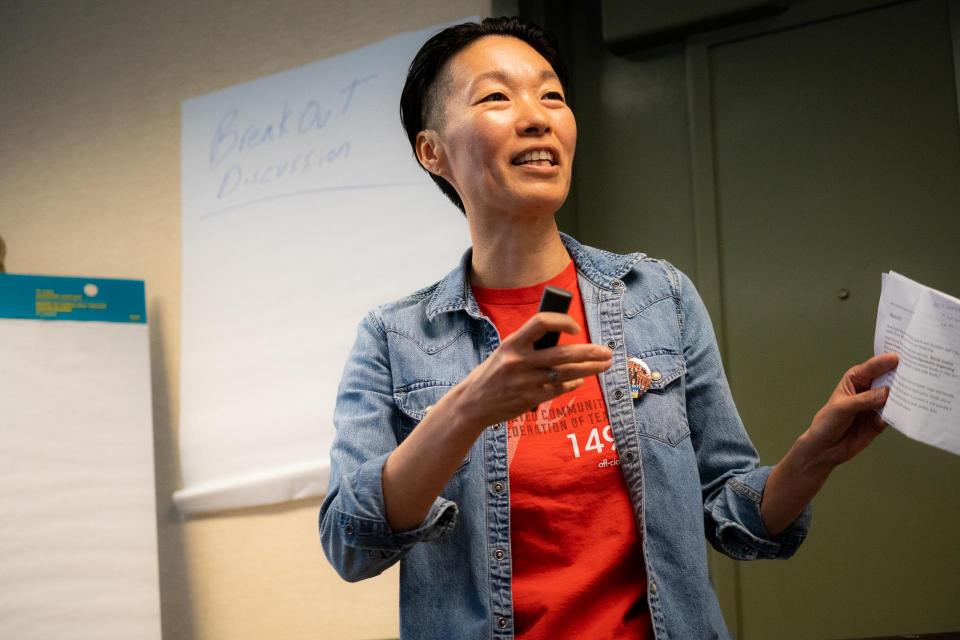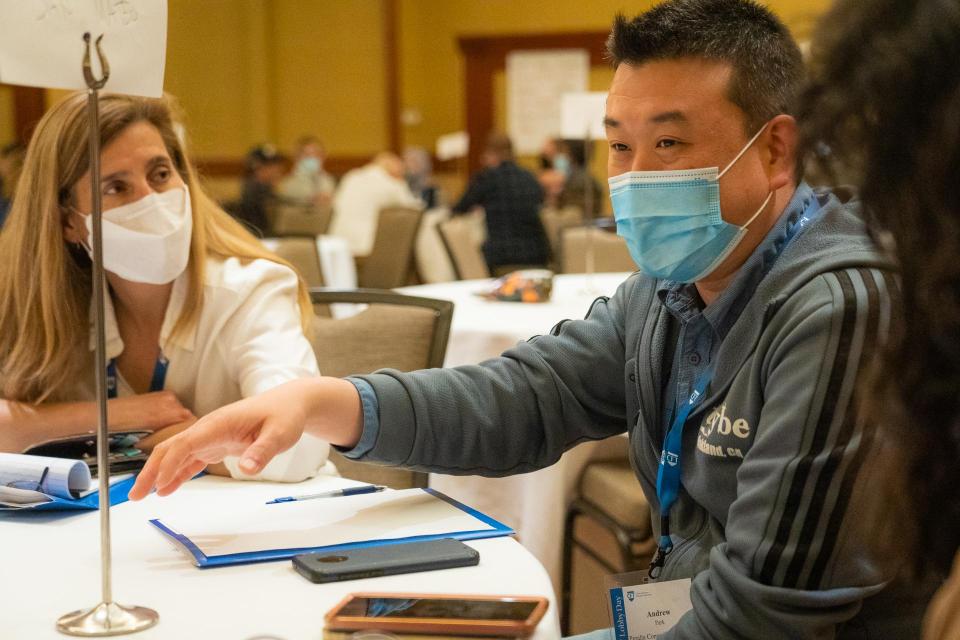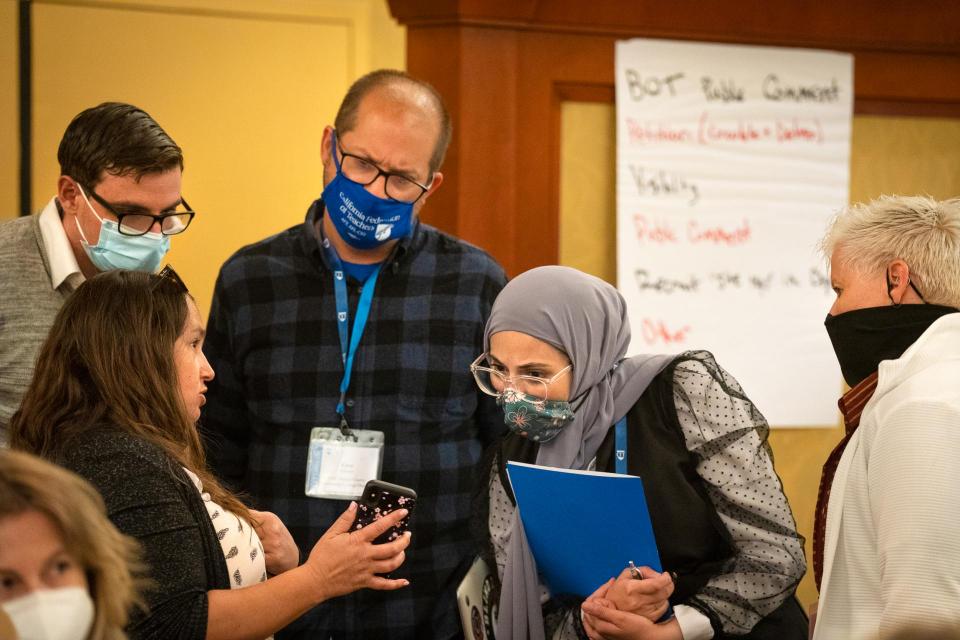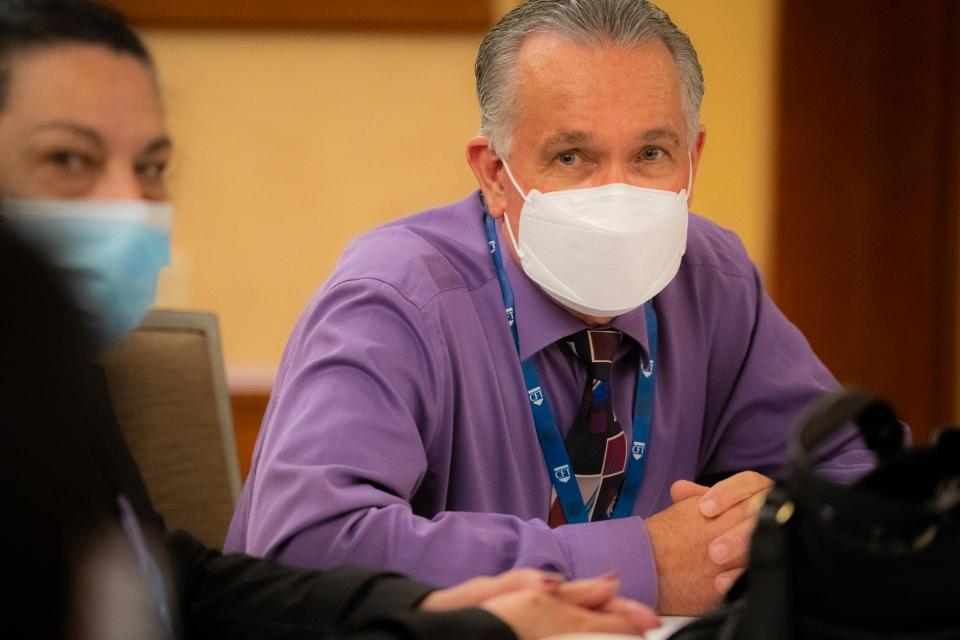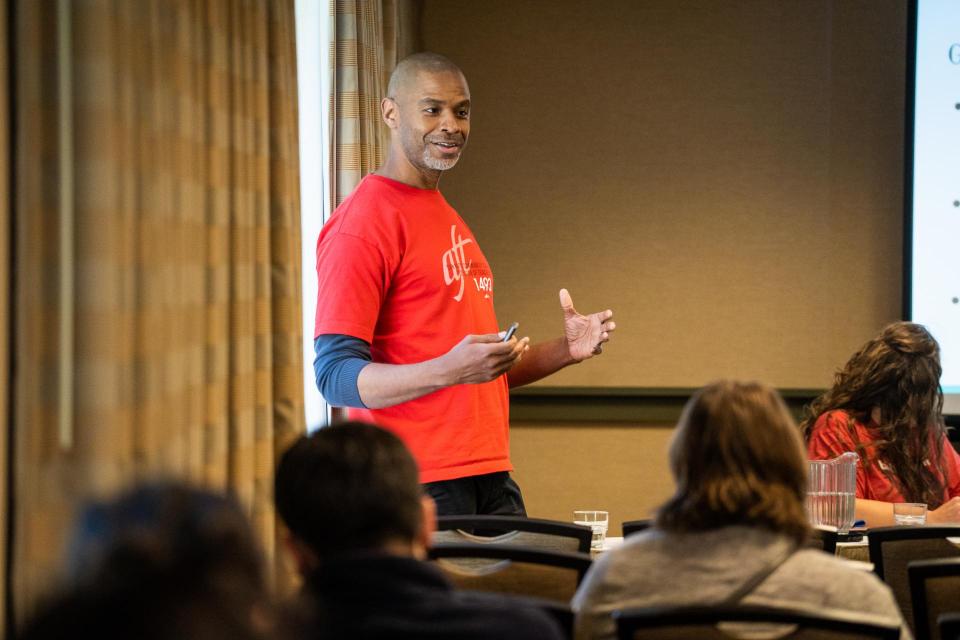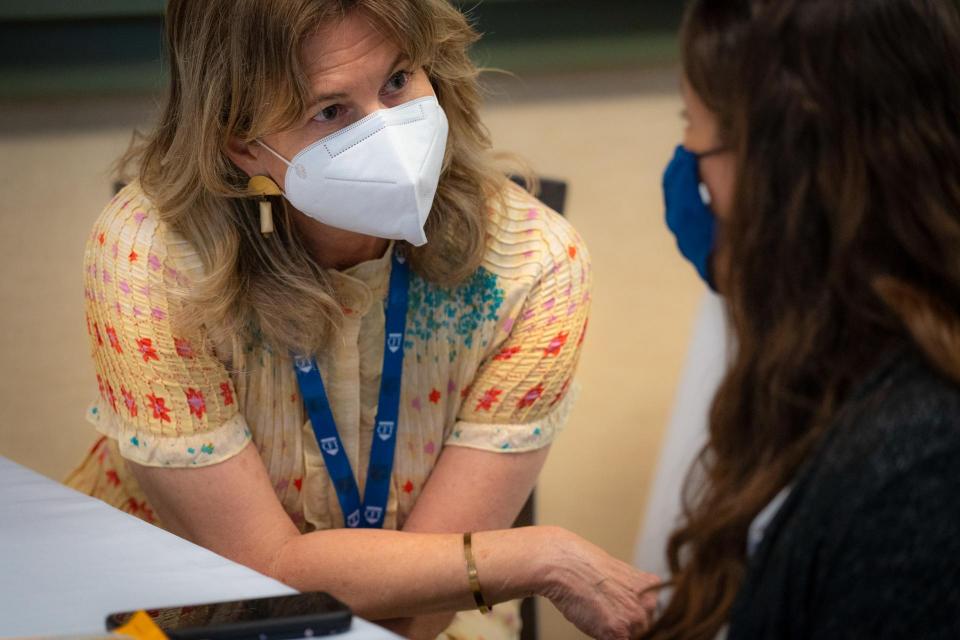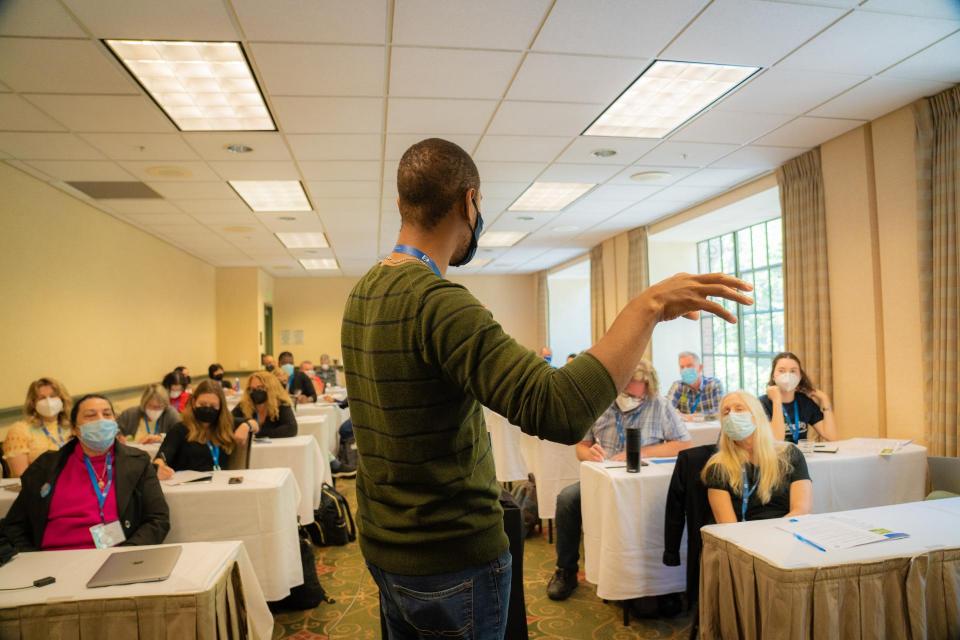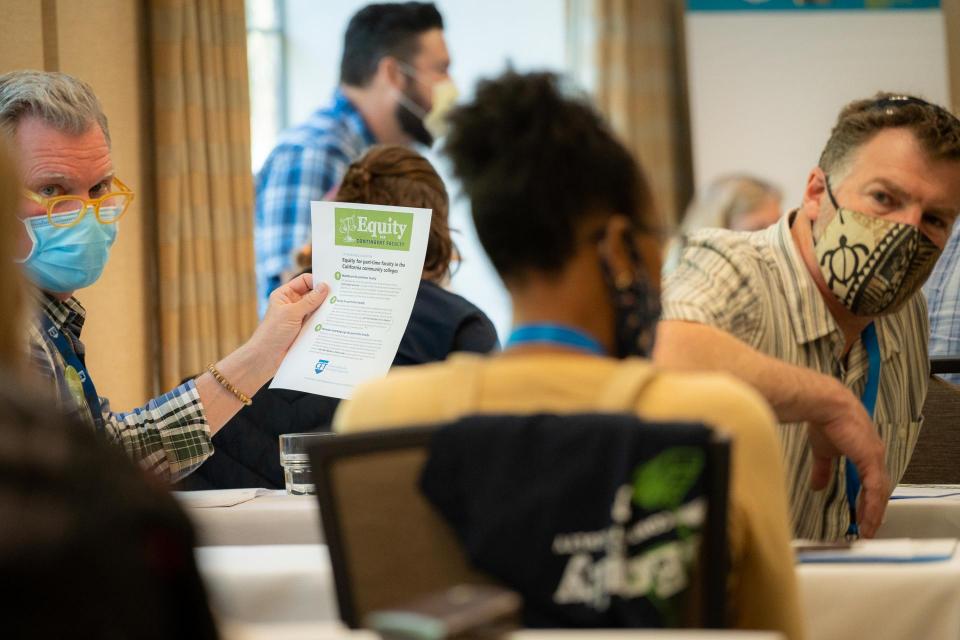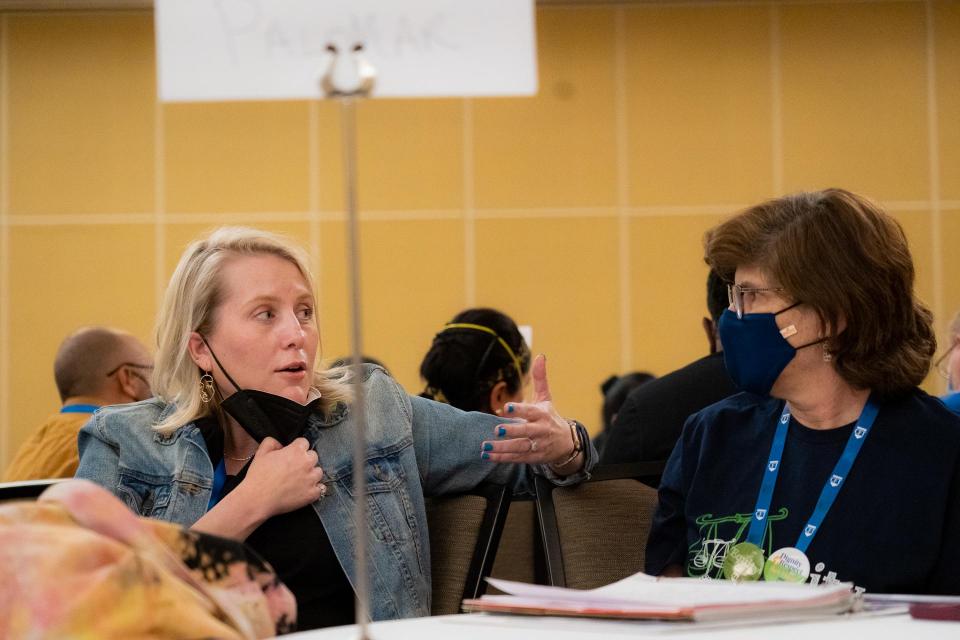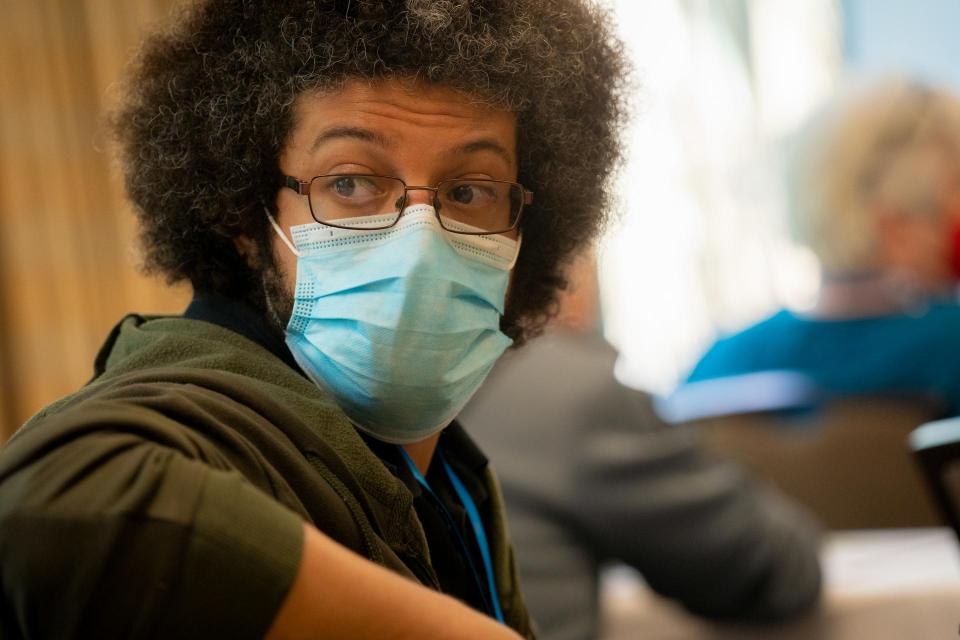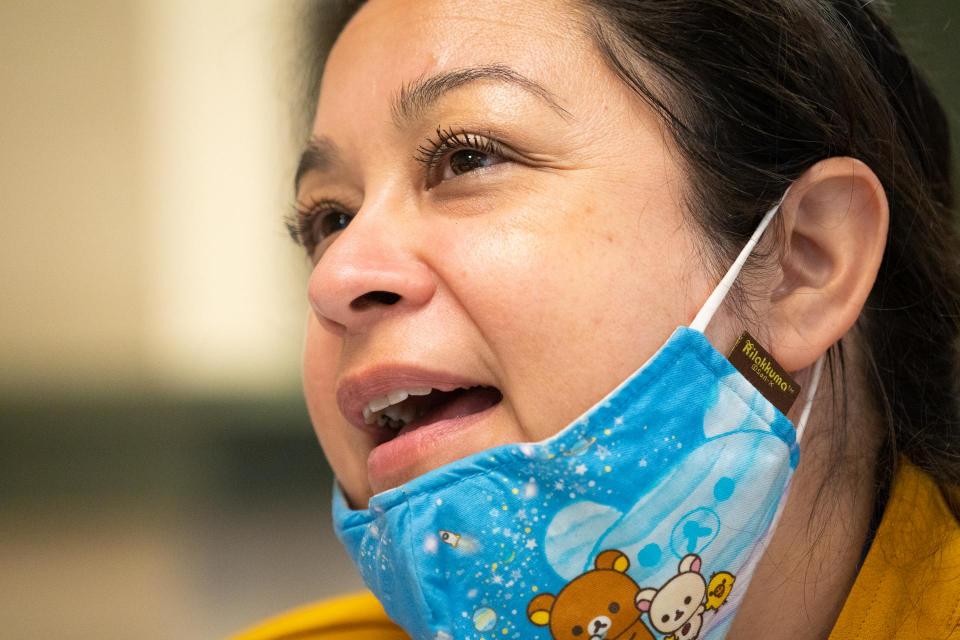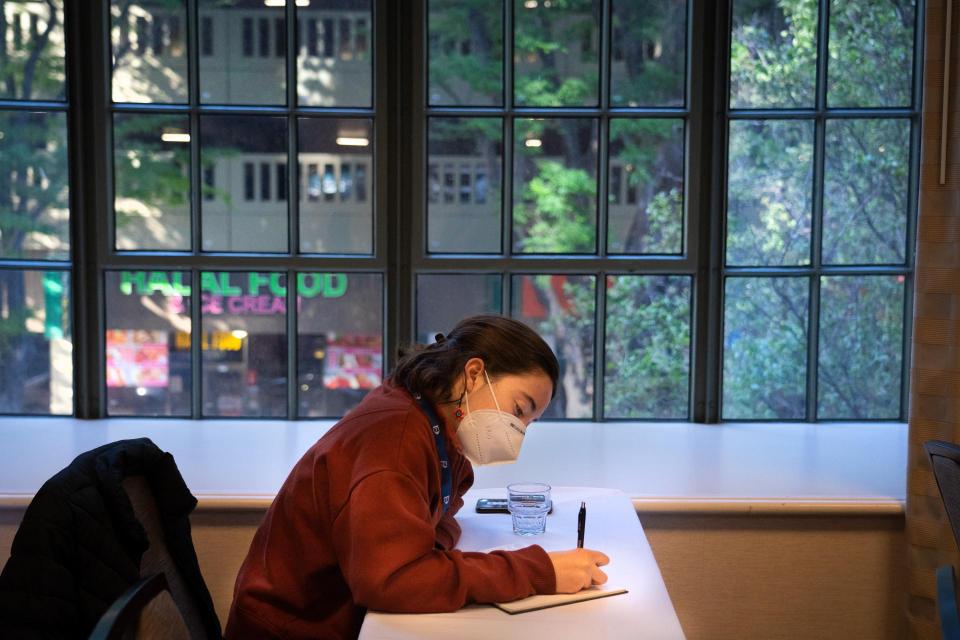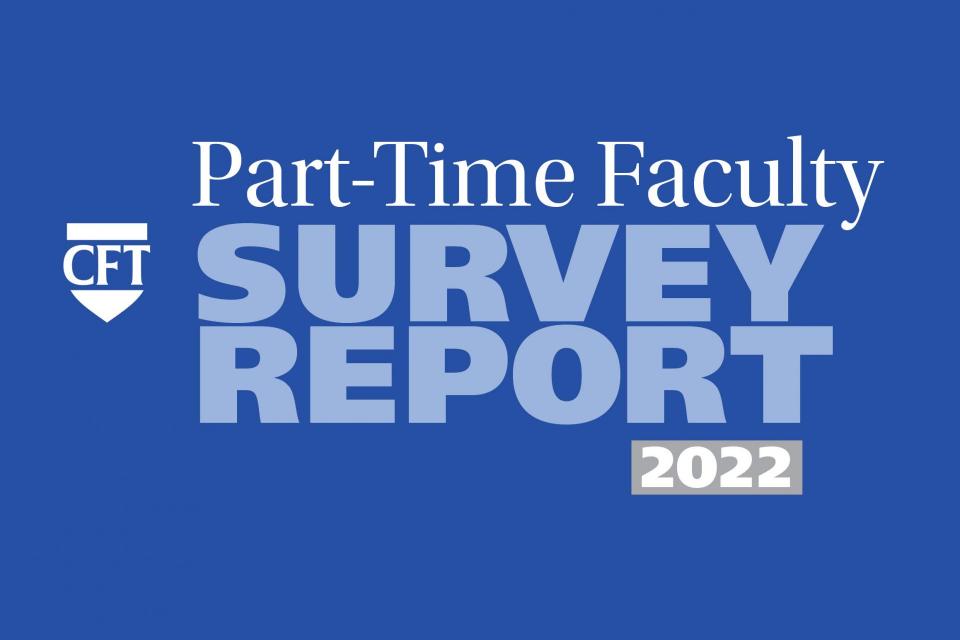Topic: Education Funding
Action Alert: URGENT! Call your Assemblymember now: Support Charter School Accountability (AB 84)
Update: Our campaign to call California Assembly members was successful! AB 84 passed out of the Assembly on June 5, 2005 and will continue through the legislative process this year.
In the coming days the California Assembly will vote on AB 84, a bill that would enact comprehensive reform to non-classroom-based (NCB) charter school law.
It is urgent that members of the State Assembly hear directly from CFT members that we strongly support this bill.
Take Action: Tell Sacramento no cuts to UC
Thank you to all who took action on the UC budget. The action is now closed.
Governor’s Proposed State Budget for 2024-25
Research Brief
Governor’s initial proposal for 2024-25 budget addresses large deficit without significant cuts or increases to public education funding
On January 10, Governor Newsom presented his initial budget proposal for the upcoming fiscal year. With tax receipts down this year and the late tax deadline last year, the Department of Finance is estimating a $37.9 billion budget deficit in the year ahead. Despite the shortfall, Governor Newsom did not propose significant cuts to education, instead essentially funding K-14 education at a similar level to the current year.
Legislative Update: Newsom’s Proposed State Budget ‘24-25
Initial Overview
January 11, 2024
Governor Newsom presented his initial 2024-25 budget proposal yesterday, with less dire projections than had been anticipated. The $291 billion budget proposal is about 6% smaller than the total 2023-24 budget, and about 8% smaller than the General Fund spending approved in the 2023-24 budget act.
The budget deficit as calculated by the Department of Finance (DOF) is estimated at $37.9 billion for the coming fiscal year; this is about $30 billion lower than the Legislative Analyst projected last month.
State budget for 2023-24
Protects public education with ongoing funding; staffing crisis requires more support
State budget for 2023-24 protects public education with ongoing funding; staffing crisis requires more support:
Governor Newsom and the state Legislature came to an agreement in late June on a budget for 2023-24 that includes $225 billion in general fund expenditures while addressing a $31.7 billion deficit.
The Proposition 98 funding minimum guarantee is $108.3 billion in 2023-24, which is less than what last year’s enacted budget assumed, but slightly higher than the revised guarantee for 2022-23.
Governor’s Proposed State Budget for 2023-24
Research Brief
Governor Newsom started off the 2023-24 budget process on January 10 with a $223.6 billion proposal. Facing lower revenues than expected last year and a budget deficit projected at $22.5 billion by the Department of Finance, the January budget proposal is cautionary. Since the 2022-23 enacted budget anticipated a different budgetary landscape and included significant one-time expenditures, the governor’s initial proposal includes few cuts to education and does not draw on the available rainy-day reserves. Protecting education funding, the proposal also fully funds the statutory COLA, which is estimated at 8.13% at this time.
CFT-sponsored wealth tax introduced in California Assembly
Part of coordinated effort with seven other states
In a concerted effort with seven other states, yesterday CFT President Jeff Freitas and Assemblymember Alex Lee (D-San José) reintroduced a tax on extreme wealth in California as AB 259 and an accompanying proposed constitutional amendment, ACA 3.
Local bargaining for part-time faculty healthcare ramps up
Phase 2 of Part-Time Faculty Campaign kicks off with regional meetings, negotiations training, Campus Equity Week
Securing annual funding for part-time faculty healthcare is an unprecedented legislative win. The next step is to secure that healthcare at the local bargaining table.
AFT resolution asks U.S. Department of Education to conduct higher ed study
Calls for national data about adjunct/contingent pay and benefit inequities
CFT once again demonstrated its commitment to adjunct/contingent faculty by submitting and winning unanimous passage of its resolution “Calling for Department of Education Study of Pay and Benefit Inequity” at the AFT Convention July 15 in Boston.
Governor signs six CFT bills, plus budget trailer bills with union priorities
Legislative Update
Governor Newsom signed six union bills at the end of September that the CFT successfully lobbied in both houses of the Legislature. The CFT had sponsored or co-sponsored 16 legislative bills alongside several budget proposals in the last year of the 2020-22 legislative session. A majority of these priorities made it to the governor’s desk or were included in the state budget, with only one bill being vetoed by the governor.
FAQ: Part-time faculty healthcare, collective bargaining & state budget
Answers to common questions
Updated September 27, 2022
This year we won a historic expansion of state funding for part-time community college faculty healthcare, increasing state support from $490,000 to $200 million in ongoing funding.
The funding will enable local community colleges to provide quality, affordable, and accessible healthcare to substantially more part-time faculty. Local unions should now prepare to go to the bargaining table to negotiate the healthcare implementation.
What budget trailer bills mean for education workers
Legislative Update
On September 30, Governor Newsom signed the final budget trailer bills sent to him by the Legislature after passing the bills and a “budget junior” on August 31. Budget trailer bills are created by the Committee on Budget to provide technical language for the implementation of fiscal allocations. The budget junior bill includes additional allocations as well as additional items necessary for implementation of some July budget expenditures.
The budget-related bills go into effect immediately. CFT priorities in the budget trailer bills are listed below.
Join a campaign kickoff meeting on Zoom — Faculty Healthcare Now!
In phase 2, learn how to secure funding for part-timer healthcare in your community college district
We invite local union leaders, activists, and rank-and-file members to please join us and kick off this phase with faculty power!
In Phase 1 of the Part-Time Faculty Campaign, our collective efforts secured $200 million in ongoing funding for part-time faculty healthcare in the California state budget. Now in Phase 2, we are launching coordinated collective bargaining as members begin to mobilize and bargain in their home districts to secure this funding in contracts or MOUs.
What does Biden’s cancellation of student debt mean?
Understand the changes; pandemic pause for repayment pushed back four months
The AFT and CFT applauded President Biden’s plan announce August 24 to cancel up to $20,000 in student debt for some borrowers and extend the pandemic pause on loan repayment.
AFT President Randi Weingarten in a press release said, “Today, millions of Americans can breathe easier knowing that some of the crushing burden of student loan debt has been lifted. Make no mistake—this is a transformative action that will change countless lives.”
Join a campaign kickoff meeting this fall — Faculty Healthcare Now!
Local mobilizing and bargaining — learn how to secure funding for part-time healthcare in your community college district
In phase one of the Part-Time Faculty Campaign, our collective efforts secured $200 million in ongoing funding for part-time faculty healthcare in the California state budget.
Now we are launching phase two — coordinated collective bargaining — as members begin to mobilize and bargain in their home districts to secure this funding locally.
FAQ: Part-time faculty healthcare, the state budget, and collective bargaining
Quick answers to common questions
Updated July 1, 2022
About half of the California community college districts offer healthcare benefits for part-time faculty; the quality of the benefits is wide ranging with some offering the same benefits package to full- and part-time faculty and some offering very modest stipends to help cover the cost of insurance.
State budget continues record funding for public education, secures funding for part-time faculty healthcare
Legislative Update
Funding for part-time community college faculty healthcare secured
Governor Newsom signed the final state budget on Friday, June 30 after the governor and state legislators reached agreement on the 2022-23 budget over the weekend. The deal includes record levels of funding for public education and the $200 million to support part-time faculty healthcare that CFT has been championing throughout this budget process.
Part-timers and allies lobby legislators for healthcare, pay parity
PHOTO GALLERY
Students and full-time faculty join forces with part-time faculty
From the Bay Area to San Diego, and from the Central Valley to the Mojave Desert, part-time community college faculty, along with full-time faculty and student allies, gathered at Sacramento’s famed Sutter Club on Monday morning, May 1, to go forth and make California legislators aware of the critical need for part-time faculty healthcare and pay parity.
Part-Time Faculty Conference empowers through learning
PHOTO GALLERY
Workshops focus on bargaining, lobbying, organizing, diversity, communications
When it comes to union work, power and knowledge work hand in hand. Union is not simply about expressing demands, speaking truth to power, and being resolute in the face of adversity. It’s about making connections, sharing truths, building solidarity, empowering, and speaking to be heard.
Developing the knowledge to do these things and putting the power of that knowledge to use was core to the workshops at the CFT Part-Time Faculty Conference held May 1-2 in Sacramento.
Groundbreaking CFT survey calls out healthcare crisis among part-time faculty
Critical insights into part-time faculty in community colleges statewide
The results of CFT’s groundbreaking statewide survey of part-time faculty offer critical insights into the daily, personal, and structural challenges that part-time and contingent faculty experience when it comes to healthcare.




